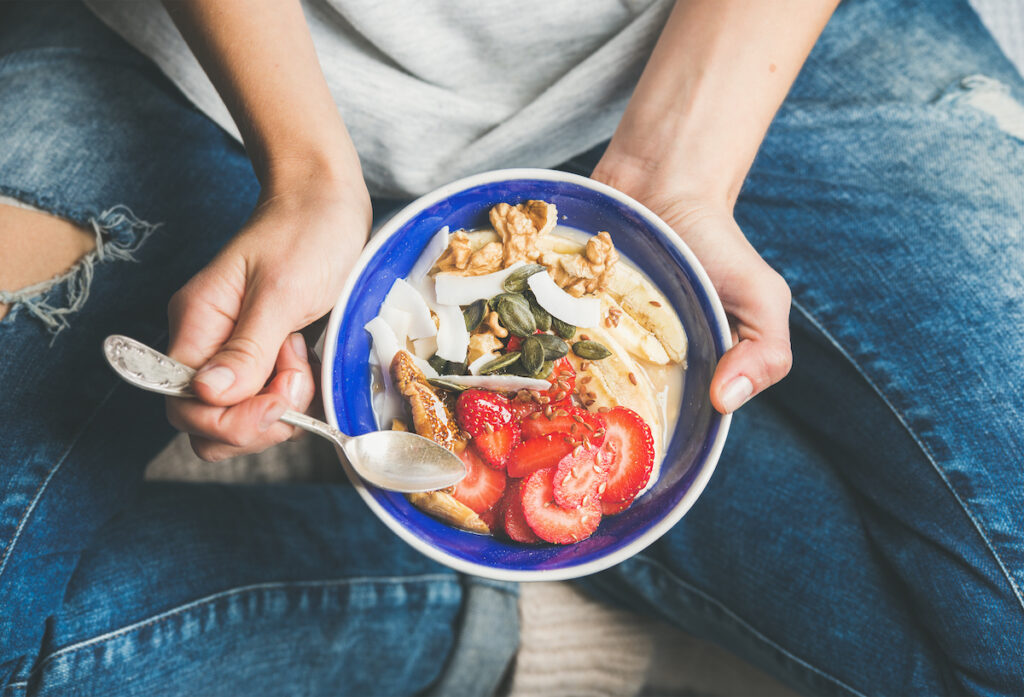It would seem like no brainer – The foods you eat can affect your mood.
This might seem obvious that someone with addiction will be able to understand how things you eat or consume can affect you mentally and physically.
Unfortunately, that is not the case!
When people enter a drug rehab centre, they hardly have any knowledge about proper nutrition and how important it is for treatment.
One of the key pillars of addiction recovery is the meals you take. Eating a balanced diet builds your physical body and revamps your mental strength to prepare for the treatment and tolerate the withdrawal symptoms.
In that context, today will discuss the importance of having good and healthy food during recovery and what food you should eat.
Addiction Affect Your Appetite
Table of Contents
Addiction can have many long-term effects on your health and nutrition. Addiction elements can vary in their effects, but almost all addictive substances affect your mental health and psychological state.
These psychological states affect how people think or what they feel. This can also affect their eating habits and can change their perception of food.
For instance, if a person is under the influence of addiction, they might simply suppress the hunger or forget about it. In fact, many addicts misinterpret the hunger prank for their addiction. So, when they feel hungry, they think of it as a body wanting more of an addiction element.
Lack of nutrients can affect the body and damage the organs. Ultimately affecting your immune system.
On the other hand, there have been cases where people have found binge eating while under the influence. Although this might be better than not eating at all, it does come with several health risks of its own.
A person with binge eating habits can see their weight increasing at an alarming rate. Being overweight comes with its own set of health problems.
The only way to avoid finding yourself amidst these scenarios is to seek immediate help. Once you know your addiction habit, contact Gallus Detox and start the treatment process – read more about it here.
What To Eat During Recovery?
The recovery phase can be tough on patients suffering from addiction, especially during withdrawal symptoms. While you are recovering, you must have a balanced diet that stimulates serotonin (a hormone that helps you with relaxation).
A diet that activates your body to release serotonin include:
- Foods with carbohydrates.
- Legumes.
- Root vegetables.
- Pasta and bread.
Eating these foods with the combination of protein stimulates your brain to release serotonin and gives you a sense of relaxation.
When a person is suffering from addiction, they have found experiencing a deficiency in Vitamin B-Complex, folic acid, and B12. in addition, if the chronic alcohol consumption continues, it results in lower Zinc level in the body.
Overall, malnutrition has become a common occurrence for individuals suffering from addiction. You may find yourself feeling tired all the time and building a weak immune system.
Hence, you must prioritize your diet while recovering from addiction. A diet for recovery should include:
- Dairy products rich in protein.
- Complex carbohydrates.
- Animal protein in moderation.
- Fat with 30% of calories.
Nutrition & Addiction: Foods To Help You Heal
If you have fallen victim to addiction, your lifestyle will see several long-term and short-term health changes. People suffering from addiction often neglect food, making them weak and damaging their organs. This is the reason why medical detoxification centers have nutritionists to offer a balanced diet to every patient.
Once you have started medical detoxification, consuming the right food can help your mind and body heal in the best way possible. What’s more, a healthy body ensures a faster recovery.
Here we have listed down a few food items that need to be a part of your diet to ensure a faster recovery.
1. Pork & Beans
Pork and beans have been a part of a healthy diet for centuries. They offer the most essential Vitamins that help with effective brain functioning and maintain your neurological health.
The importance of Vitamins can be understood for the fact that Thiamine or Vitamin B1 is added to the WHO’s List of Essential Medicines.
2. Milk
Achieving a good night’s sleep is often challenging while you are going through the medical detoxification process. You must understand that sleep is as important as any other activity. A glass of milk before going to bed can help you with a good night’s sleep.
Milk or other dairy products contain healthy proteins in the form of Tryptophan which stimulates your brain to release sleep-aiding chemicals Melatonin.
3. Broccoli
Addiction takes a huge toll on your liver. Broccoli can have all the necessary vitamins and minerals that can help cleanse your liver naturally.
However, if you’re not a fan of green, gg with onions and garlic can also do the trick and help detox your liver.
4. Potato
Recovery from addiction often results in cravings. To cope with the cravings, patients are fed with giant glasses of sugar. This is because alcohol is broken down by the body into sugar which plummets blood glucose levels.
One way to exit this cycle is by adding something to your diet which is healthy as well as has high sugar content. In that case, what’s better food than potatoes?
5. Fish
The addiction recovery process is followed by stress, anxiety, and eating disorders. This can be controlled with seafood. Fatty acid fish such as salmon, herring, and mackerel contain omega 3 are effective in controlling mood and easing anxiety.
Eat Good, Feel Good!
No doubt, eating healthy can boost your recovery. However, eating alone cannot help you with your recovery; you must ensure that you are eating a balanced diet. A balanced diet will help your body get all the nutrients it needs.
That being said, your addiction rehab center certainly plays an important role. Addiction treatment centers come with certified pediatricians and nutritionists who offer their expertise and help patients with a balanced diet.

